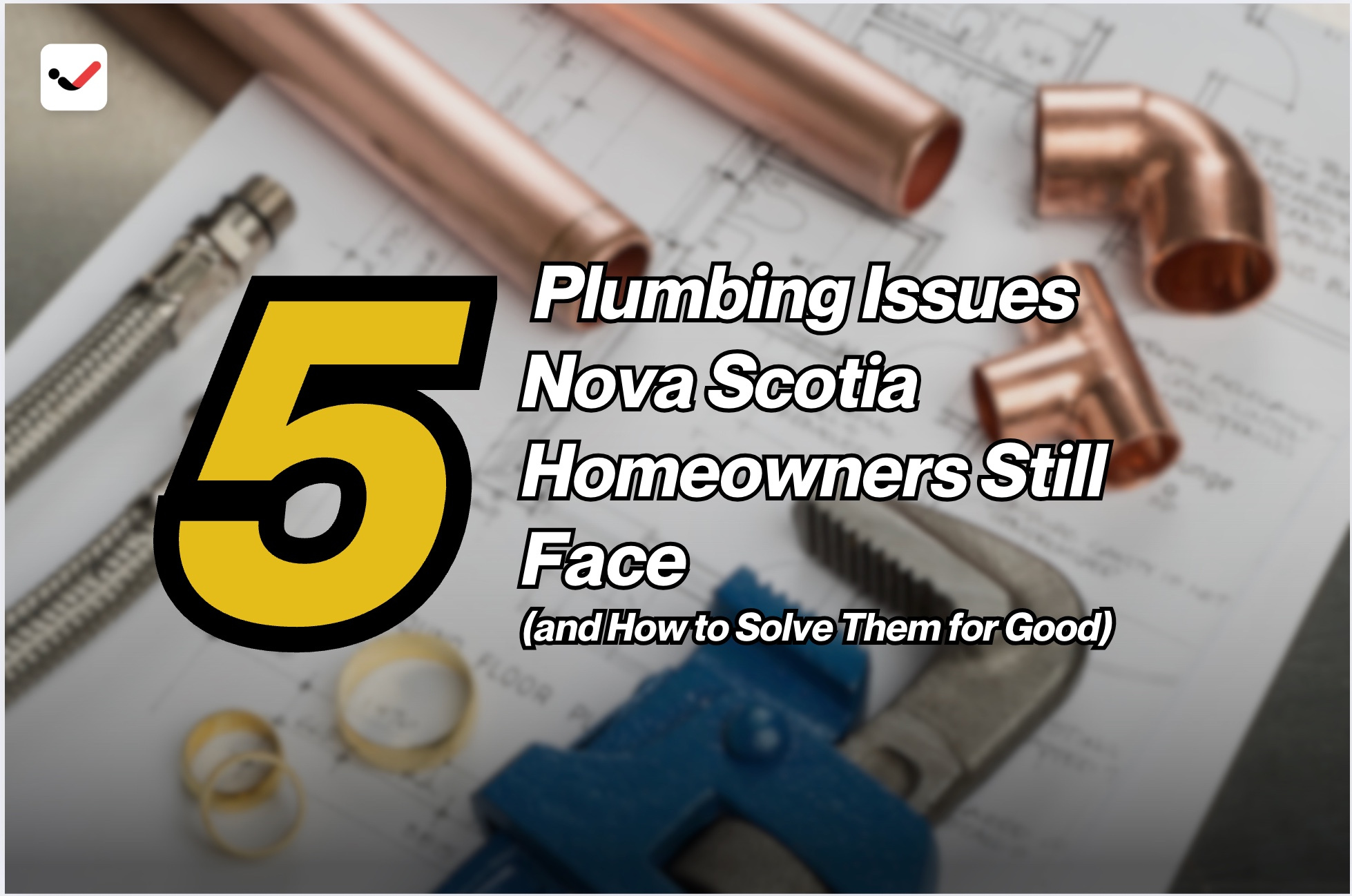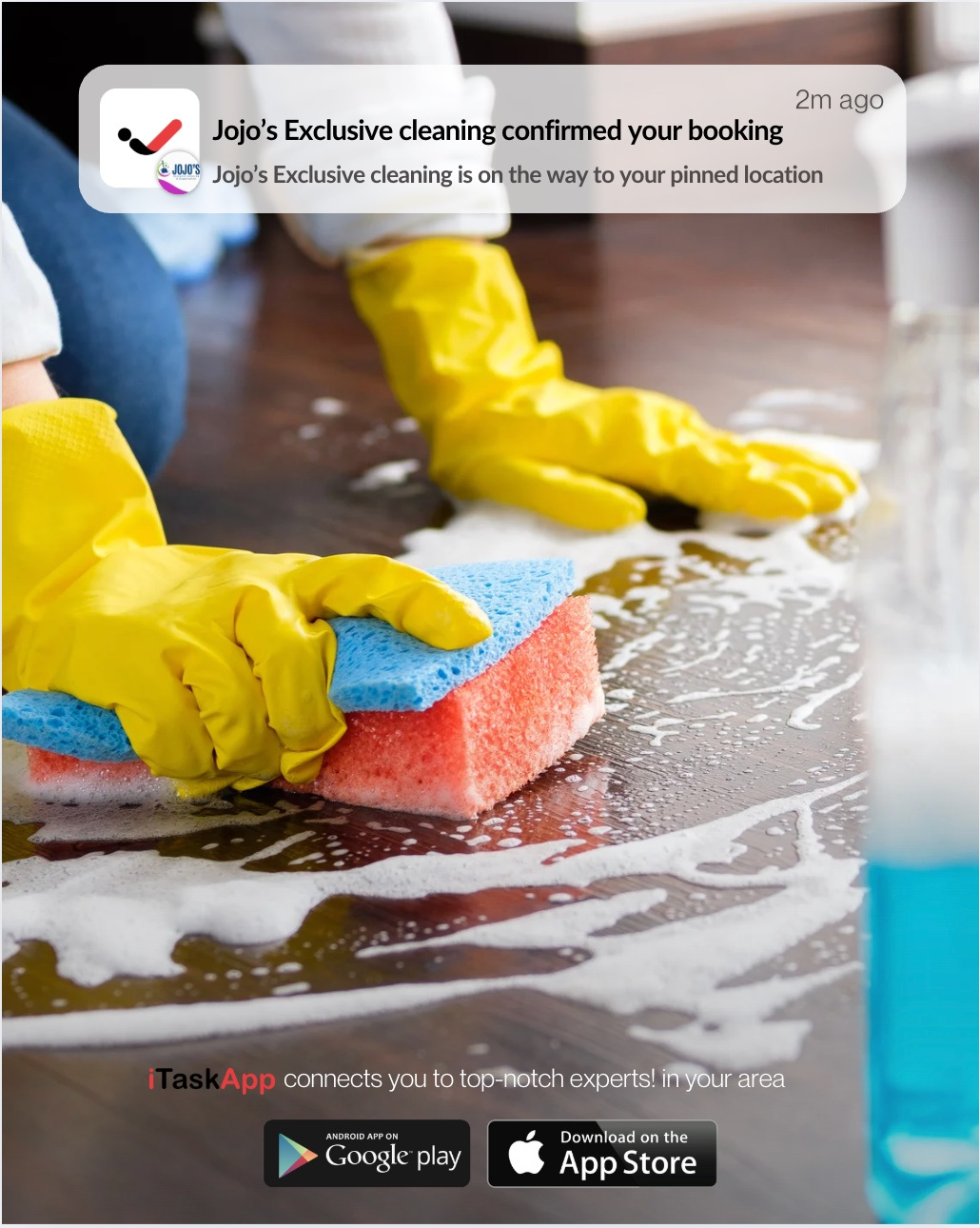5 Plumbing Issues Nova Scotia Homeowners Still Face (and How to Solve Them for Good)
5 Plumbing Issues Nova Scotia Homeowners Still Face (and How to Solve Them for Good)

Owning a home in Nova Scotia comes with its fair share of maintenance challenges, and plumbing is one of the most common. The region’s older homes, shifting weather, and aging infrastructure can all play a role in repeated plumbing problems. Whether you live in Halifax, Dartmouth, or a rural community, you’ve probably had to call a plumber at some point — or at least grab the plunger yourself.
This article breaks down five plumbing problems that still affect many Nova Scotia homeowners today. These aren’t rare or unusual problems. They’re the ones that keep coming back because they’re often fixed the wrong way — or not fully fixed at all. More importantly, we’ll show you how to solve each of these problems the right way, so you can avoid repeat visits and unexpected costs.
1. Frozen Pipes in Winter
The problem:
Nova Scotia winters can be harsh, and one of the most common issues during this time is frozen pipes. When temperatures drop, water in the pipes can freeze and expand, leading to cracks or full-on bursts. This can cause serious water damage and costly repairs, especially in older homes with poorly insulated pipes.
The fix:
Insulating your pipes is the most effective way to prevent freezing. Use foam insulation sleeves on exposed pipes in your basement, attic, and crawl spaces. If your home is prone to drafts, seal any air leaks near the pipes. During cold snaps, open cabinet doors under sinks to let warm air circulate and keep a slow trickle of water running from taps to prevent freezing. If pipes do freeze, don’t use an open flame to thaw them — call a licensed Nova Scotia plumber for a safe repair.
2. Low Water Pressure
The problem:
Low water pressure can turn everyday tasks like showering or washing dishes into a frustrating experience. It’s a common complaint in homes across Nova Scotia, especially older properties or homes with outdated plumbing systems. Causes range from sediment buildup in pipes to hidden leaks or corroded fixtures.
The fix:
Start by checking if the low pressure is isolated to one faucet or the whole house. If it’s just one fixture, cleaning or replacing the aerator may solve the problem. If it's widespread, it might be time to inspect your main water line or plumbing system for corrosion, especially if your home has galvanized steel pipes. Replacing old pipes with modern materials like PEX or copper can significantly improve water pressure and avoid future issues. If you're not sure, a plumbing inspection can identify the exact cause.
3. Clogged Drains and Toilets
The problem:
Clogged sinks, bathtubs, and toilets are everyday annoyances in many Nova Scotia homes. These blockages can be caused by hair, grease, food waste, or even tree roots growing into your sewer line. If you’re reaching for the plunger more than once a week, it’s not just bad luck — it’s a sign of a deeper issue.
The fix:
Start with preventive habits: don’t pour grease down the sink, use hair catchers in drains, and only flush toilet paper. If clogs still happen often, you may have buildup or obstructions in your drainpipes. Chemical drain cleaners can do more harm than good, damaging pipes over time. Instead, call a professional plumber for a drain cleaning service. In some cases, especially with older clay sewer pipes, tree root removal or a trenchless pipe replacement may be needed to solve the issue permanently.
4. Sump Pump Failures
The problem:
With heavy rain and snowmelt, many Nova Scotia homes rely on sump pumps to keep basements dry. But if your sump pump fails, you could end up with serious water damage. A faulty float switch, power outage, or blocked discharge line are all common reasons a sump pump stops working when you need it most.
The fix:
Test your sump pump every few months by pouring water into the sump pit and making sure it turns on and drains properly. Clear any debris and ensure the float switch moves freely. Consider adding a battery backup system to keep your pump working during power outages, which are common during winter storms. If your pump is over 10 years old, replacement may be more cost-effective than constant repairs.
5. Leaky Faucets and Running Toilets
The problem:
Dripping faucets and constantly running toilets are more than just annoyances — they waste hundreds of litres of water every week. For Nova Scotia homeowners on municipal water, this can increase your utility bills. For those on well water, it can strain your system and reduce water availability.
The fix:
Most faucet leaks are due to worn washers or seals, which are easy to replace with basic tools. For running toilets, the flapper or fill valve is usually the culprit. These parts are cheap and available at any hardware store. Fixing these small leaks not only saves water but also protects your plumbing system from wear and tear over time. If you're unsure where the leak is coming from, a water leak detection service can help pinpoint the problem.
Many plumbing issues in Nova Scotia homes are avoidable with the right maintenance and upgrades. Whether you're dealing with frozen pipes, low pressure, or sump pump failures, the key is to stop patching and start fixing the root cause. Investing in professional plumbing services, especially from licensed local plumbers who understand Nova Scotia's climate and building codes, will save you time, stress, and money in the long run.
Don’t wait for a full-blown emergency to take action. Regular inspections, preventive upgrades, and smart plumbing habits can keep your home safe, dry, and running smoothly all year round. Whether you're in Halifax, Sydney, or Lunenburg, staying ahead of these common problems means fewer surprises — and fewer plumber visits.

